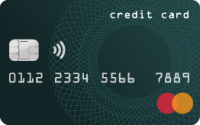The BestCreditOffers.com webpage is a free service and an information resource for credit cards and financial products and services available to eligible United States consumers. BestCreditOffers.com does not offer any warranties and is not a direct service. There are no guarantees for approval or offers when applying for a credit card. Please refer to the application if you would like more information on each credit card. When you click "Apply" for a particular credit card, please take the time to review the terms and conditions of the product/service at the issuer's website. All logos on the BestCreditOffers.com website are property of their respective owners.
ADVERTISER DISCLOSURE:
BestCreditOffers.com is an independent, advertising-supported website which receives compensation from the credit card issuers and companies whose offers appear on the site. Compensation may impact how and where products appear on our site, including, for example, the order in which they may appear on the site pages. BestCreditOffers.com does not review or list all available financial or credit offers.
Information in these articles is brought to you by BestCreditOffers.com. Banks, issuers, and credit card companies mentioned in the articles do not endorse or guarantee, and are not responsible for, the contents of the articles.
See the credit card's terms and conditions on the online application page. Note that this website may be compensated by credit card issuers when the visitor applies for a card through the links on this website. We do our best to maintain all information accurate and up to date. However, we do not warrant the credit card information won't change. Click the "Apply Online" button and review the current info on the secure credit card terms page.
BestCreditOffers.com makes every effort to keep information up to date and accurate. However, the information regularly changes and is presented without warranty. Therefore, we strongly recommend all our readers to visit the credit card application page by clicking "Apply Online!" button to review the detailed credit card's terms and conditions. Note that BestCreditOffers.com may be compensated by the credit card issuers when the readers apply for a credit card through this site.
Disclaimer: This editorial content is not provided or commissioned by the credit card issuer. Opinions expressed here are the author's alone, not those of the credit card issuer, and have not been reviewed, approved or otherwise endorsed by the credit card issuer. Reasonable efforts are made to present accurate info, however all info is presented without warranty. Consult a card's issuing bank for terms & conditions.
Copyright © 2001-2024 BestCreditOffers.com
All Rights Reserved.
 James Williams
James Williams




